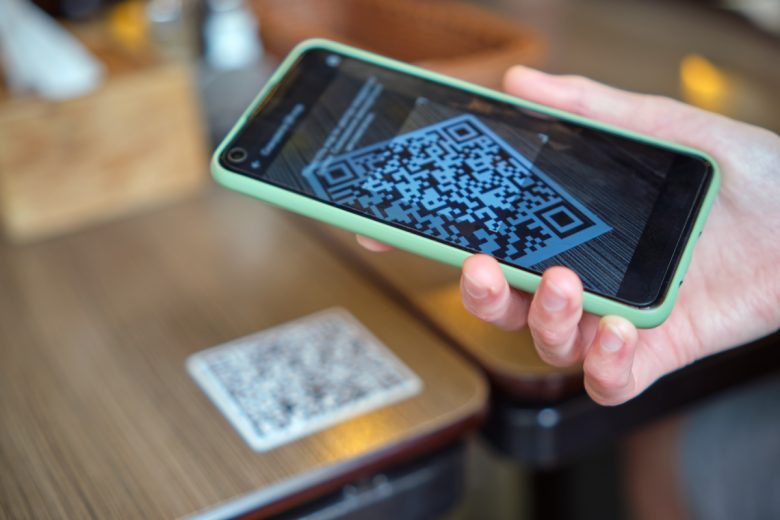As an entrepreneur, the thought of all the different ways to market your business will feel overwhelming. Undoubtedly, you’ve been told that marketing via the internet is the best way to go. However, that is not as cut and dry as it sounds. The internet is a vast place with billions of sites and ads competing for the attention of the user. There are also dozens of different marketing strategies that can be applied to a marketing campaign. One of those is mobile marketing
Many people mistakenly confuse mobile marketing and digital marketing. While the two are related, there is a difference between digital marketing and mobile marketing. Mobile marketing involves strategies that are aimed solely at mobile users via their smartphones. This article gives seven types of mobile marketing you can employ for your business.
SMS Marketing
Sending texts is a great way to boost your engagement. Sending SMS text messages to your customers is direct and immediate. Which is why it is so effective. Statistics show that 97% of texts are read within 15 minutes of delivery. You can encourage customers to sign up for text messages in exchange for the offer of discounts and promotions.
Opening this communication channel is a productive baseline for continuing contact with your customers. Personalized messages are essential in text message marketing. This opportunity to gather and retain valuable information is vital as you will use that to target customers. Hopefully, to make more purchases in the future.
It is important to note that to market via SMS texts, you should first get their customers’ permission. This is primarily because data usage rates may apply to mobile plans.
QR Codes
When first unleashed into the retail world, QR codes appeared to be something made for a rocket scientist. Dramatic, maybe. But, most people had difficulty coming to grips with this new technology that came to light during the pandemic. Especially Gen Xers. QR codes are unique as they allow companies to collect first-party data. This data is much more valuable and reliable than 3rd party data.
Once QR codes were understood, they were revealed as simple and easy to understand. These codes erase the middleman. With one scan on your smartphone, you are directed to the website page you need. In 2021, it was recorded that 75.8 million US citizens scanned a QR code. With data like this, there’s no wonder why experts predict QR codes to have a big future in marketing.
Location-based Marketing
Mobile marketing thrives upon its ability to tap into location services. It’s no secret that companies are logging and storing customer data. Location-based marketing is designed to target customers due to their locations. That way they are sent push notifications and are tempted to make purchases.
Another way this works is if a customer searches for a topic, brand, or business nearby businesses. The location data will then show at the top of the customer’s SERP (search engine results page). Showing at the top of the SERP is highly effective in acquiring sales.
In-Game Advertising
Incorporating advertisements into games is a unique way to introduce a non-disruptive ad option to your marketing campaign. Gaming ads will appear on billboards or walls in-game. Making the ad highly viewed and constant for the gamer. Gamers are less likely to multi-tasking. Thereby, creating a greater brand recall.
Many people believe gaming to be a male-targeted audience. However, gaming crowds have become increasingly diversified over the years. A recent study from 2021 showed that 55% of players are males, while 45% of gamers are female. Due to this diversified audience, gamers also have varied interests. So, there is marketing potential for many different product categories.
It is also worth noting that gamers are now considered influential in advertising. Many look to popular streamers and professional gamers for an introduction to the latest gaming technology and product promotions.
Mobile Apps
The smartphone was essentially catered to be a multi-tasking machine. Eventually, the mobile app became an integral part of the smartphone. Apps became customary and expected. Therefore, our reliance on them became inevitable. Mobile applications provide extreme value to the customer. But also the company and the smartphone.
Apps offer customers a strong relationship with any brand. It also provides open-ended communication. In a world where consuming has become nature, we have become more intertwined with businesses. Customers want instantaneous and 24/7 access to brands.
Applications provide all these benefits and encourage brand credibility, trust, and familiarity. It is a win-win for both parties. Mobile apps are also handy for marketing due to the capability to learn information and behaviors of consumers. Apps are the building blocks for digital marketing. They also are responsible for incorporating and tracking location services as we discussed earlier.
Augmented Reality
Augmented reality (AR) is a technology that overlays digital content, such as images or text, onto the real world. This is done by using a mobile device’s camera or screen. This tech was made mainstream in 2016 with the popularity explosion of the mobile game Pokémon GO. In the context of mobile marketing, AR allows marketers to create interactive and immersive experiences for consumers.
Because of this marketers can increase engagement instantly. They can also increase brand awareness, and ultimately, sales. By using AR, companies can create campaigns that integrate virtual elements into the physical world.
Now, brands can do things like product demonstrations or gamification experiences. All to entice and engage consumers. AR is a powerful tool for mobile marketing. It combines the convenience and ubiquity of mobile devices with the novelty and excitement of immersive digital experiences.
Mobile-First Advertising
Mobile-first advertising is a strategy that focuses on and is optimized for mobile users. So, instead of creating banner ads for desktop or laptop viewing, you would create ads that generate the most engagement for mobile users. This means advertising on websites that are optimized for mobile viewing.
Another place to think about this is on social media. Actually, it is one of the best places to start. Platforms like Instagram, Snapchat, and Facebook are already mobile-first sites. The majority of users engage with those platforms on smartphones. Obviously, the best approach is to make sure your ads on these platforms are targeted toward mobile users.
Conclusion
The competition in today’s over-saturated business market has placed marketing at the forefront of any business’s daily operations. To thrive, one must have marketing content that is clever and innovative. Mobile marketing will be a priority when navigating your business’s marketing strategy. Assessing and gathering thorough research on your target audience is necessary before mapping out your marketing plans. Taking advantage of any of these tactics is recommended. However, creating a mobile app may be the best option to begin for most companies.
Mobile apps are a relatively inexpensive marketing option. Most people are comfortable and familiar with the useability and convenience of mobile apps. From the baseline of operating a mobile app, you can easily integrate location services and text messages. QR codes are a unique tool to use when promoting special sales or events. And, in-game advertising is always a great option to consider when the funds are available.













Pingback: 6 Disadvantages of Mobile Marketing - junaidarif.live
Pingback: 7 Forms of Conventional Advertising – cacente.com
Pingback: 10 Cell Advertising Instruments that Will Elevate Your Advertising Efforts - The Owl Report
Pingback: 10 Mobile Marketing Tools that Will Elevate Your Marketing Efforts - junaidarif.live
Pingback: 10 Mobile Marketing Tools that Will Elevate Your Marketing Efforts - StartUp Mindset
Pingback: 7 Types of Mobile Marketing to Understand – Techie.Buzz
Pingback: 8 Mobile Marketing Trends for 2023 Krownjobs.com - krownjobs
Pingback: 8 Mobile Marketing Trends for 2023 - StartUp Mindset
Pingback: 7 Varieties of Conventional Advertising and marketing - The Owl Report
Pingback: 7 Types of Traditional Marketing Krownjobs.com - krownjobs
Pingback: Mobile Marketing vs Email Marketing: Understanding the Difference Between Them Krownjobs.com - krownjobs
Pingback: Mobile Marketing vs Email Marketing: Understanding the Difference Between Them - StartUp Mindset
Pingback: Vantaggi e svantaggi del Cell Advertising and marketing – Consigli digitali
Pingback: Mobile Marketing vs Digital Marketing: Understanding the Difference Between the Two - StartUp Mindset
Pingback: The 5 Most Important Goals of Mobile Marketing - StartUp Mindset
Pingback: 7 Types of Mobile Marketing to Understand – Entrepreneur – Start, Run and Grow Your Business
Pingback: 7 Types of Mobile Marketing to Understand Krownjobs.com - krownjobs